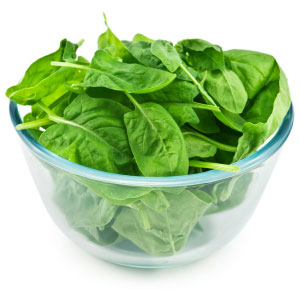
Riboflavin (the name most frequently used on the labels of supplements and fortified foods) is one of the B-complex vitamins. All of these vitamins play an essential role in metabolism.
Riboflavin, like all the other B-complex vitamins and vitamin C, is a water-soluble vitamin. The B-complex vitamins are grouped together because of their similar physical properties and their presence in similar food sources.
Because of the close inter-relationship between the B-complex vitamins, it is important to note that the inadequate intake of one of the vitamins can result in the impaired utilisation of the others.
Although small amounts of riboflavin are stored in the liver and kidney, the body's stores easily become depleted.
What vitamin B2 does for you
Your body needs vitamin B2 to be
able to turn the calories in the food you eat (in protein, fat and
carbohydrates) into glucose so that your cells can use it for energy.
The vitamin is important in the maintenance of many tissues of the body.
The vitamin also plays an important role in the protection of antioxidants. The word "antioxidant" refers to a substance that can inhibit the activity of free radicals - unusually reactive, strongly oxidising atoms capable of causing a wide range of biological damage in the body, of which the most pronounced is cancer.
Riboflavin also keeps the skin, hair and nails healthy. Research
studies have also suggested that riboflavin has a beneficial effect on
cataracts.
Which foods have vitamin B2?
Riboflavin, in its bounded form, is
available in a wide variety of foods. Dark green, leafy vegetables, meat
and dairy products are generally excellent sources of the vitamin.
Nowadays, many breakfast cereals and breads are fortified with the vitamin. Check food labels and pick products that are fortified with the vitamin.
Always choose wholewheat or unrefined carbohydrate sources to ensure a healthy riboflavin intake.
Yeast extract, such as Marmite, eggs and lamb’s liver are more specific examples of good riboflavin choices.
How much vitamin B2 do you need?
The riboflavin content of foods or supplements is expressed in milligrams (mg).
The recommended dietary allowances (RDAs) for different life stages is based on the amount required for normal body reserves, urinary excretion of the vitamin, red blood cell content, as well as other, more complex factors.
To compensate for losses, pregnant and breastfeeding women should have a higher riboflavin intake.
Adults need between 1.1mg (women) and 1.3mg (men) of riboflavin
per day. Roughly speaking, that’s the equivalent of two bowls of
fortified breakfast cereal. Pregnant women need 1.4mg, and breastfeeding
women need 1.6mg, per day.
How much vitamin B2 is too much?
The safe upper limit is 200 mg daily, although high oral doses are generally considered to be non-toxic.
Like all the other B-vitamins, excess riboflavin is excreted through the urine. You may notice that your urine is of a darker colour if you've taken riboflavin by means of supplements.
Do not take more riboflavin than is advised on the supplement's
label or more than a doctor prescribed. If you do, however, suspect an
overdose, call your doctor immediately.
Signs of deficiency of vitamin B2
Since the body doesn't store
great amounts of riboflavin, deficiency can occur if sufficient amounts
aren't included in the diet for an extended period of time. Riboflavin
deficiency usually occurs in combination with other B-vitamin
deficiencies.
Early signs of deficiency include abnormal intolerance of light ("photophobia"), the production of excess tears, burning and itching of the eyes and burning of the lips and tongue.
Later symptoms include cracks in the lips, mouth corners and skin, as well as a purple, swollen tongue.
New research on vitamin B2
Using vitamin B2 with iron supplements
can relieve anaemia. It’s also been shown to help some candidiasis
sufferers, as well as relieving the symptoms of carpal tunnel syndrome
and cramps during pregnancy.
Some researchers believe that migraine headaches are caused by a reduction of energy production by cells in the head. Since riboflavin plays a part in the process of energy metabolism, adequate intakes of the vitamin may actually help to prevent migraines.
Too much vitamin B2 can cause cataracts, but so can too little.




 Publications
Publications
 Partners
Partners













